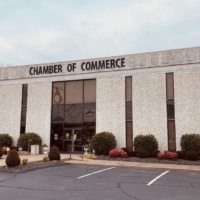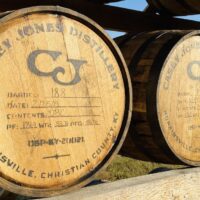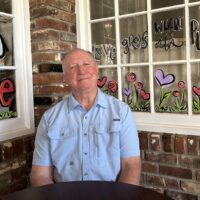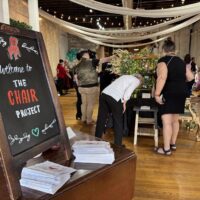Long before social media existed and provided a steady stream of hate for almost any attempt at something new or different in Hopkinsville, I think this town already had some negativity baked into its DNA. It’s the attitude that sounds like, “Oh, we can’t have nice things,” or “No, that would never work here.” We’ve heard it for decades. Facebook just makes it sound louder.
The antidote to any town’s posse of haters is to not fall for the barrage of cynicism that gets distorted through social media.
Someone who says it much better than I ever could was in town this week to consult on the potential for improving downtown Hopkinsville. Jeff Siegler, who studied behavioral economics and urban planning in college, advocates for community pride through the lens of common sense and blunt assessment. He named his consulting business Revitalize or Die, and he wrote a book titled, “Your City is Sick.”
Siegler doesn’t deliver sugar-coated advice. It’s more like tough love.
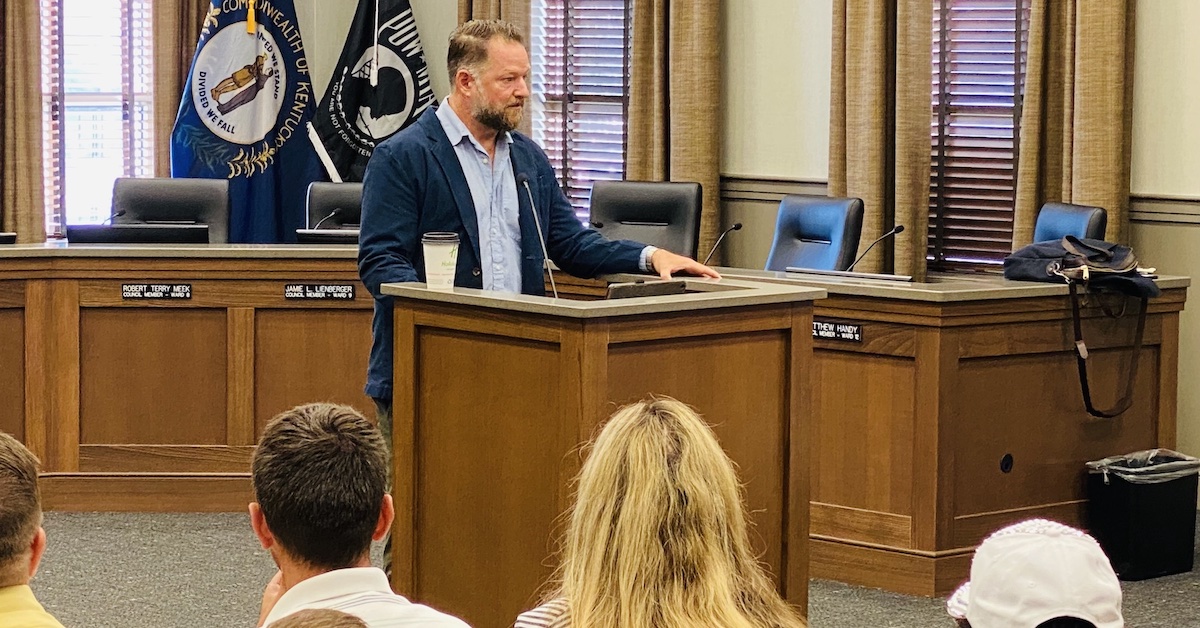
During a talk Wednesday morning in city council chambers to share his assessment and recommendations for Hopkinsville, Siegler said this about opponents to change and improvement:
“I believe it is important to set some big plans. Be audacious. Give residents something to be excited about. Dream big. Why not? … And have the courage to follow through,” he told several dozen business and property owners, agency leaders and city officials.
“I’m sure somebody will say it can’t be done. But those are the same people who would never dream of anything for themselves. They have never accomplished any of their own goals and they spend their lives trying to tear down what other people believe in and other people’s success. Those who stalk in the shadows … need to be ignored. Their opinions don’t matter,” he said.
And then, he added, “Turn off Facebook.”
Siegler’s comment came after he’d been in town for a few days, so he’d no doubt heard several people mention various Facebook users and groups who stir suspicion and hate. As I hold up Siegler’s advice, it is not lost on me that I use Facebook to share Hoptown Chronicle stories and that Siegler has a Facebook page to promote his work. But when he recommends turning it off, I know he’s suggesting that we just steer clear of the places where drama thrives and obstacles persist.
Siegler didn’t come to Hopkinsville to tell us how to rise above social media defeatism, but his comment seemed clearly apt in our community today.
Now to the larger reason for his time in Hopkinsville, Siegler outlined his recommendations for continuing the revitalization of downtown and creating an environment that attracts businesses and people.
First, he said, look at the downtown district with a fresh set of eyes. Doing this makes it hard to ignore the scruffiness of various spots. I took his advice and noticed these areas that need attention:
- Trash is scattered about the Fred Atkins pocket park, where the city has kept the entrance gate locked for months to discourage use by transients who spend time next door at Coffee Connection.
- Numerous bushes that died after last winter’s harsh cold remain in plant beds that surround several buildings.
- Weeds grow from sidewalks and in landscaped areas, including around some government properties.
- Large windows on vacant buildings are neglected and covered in dust.
Siegler conducted a Three-Day Civic Assessment, which he lists on his website for a $10,000 fee. His consulting work was sponsored by Planters Bank and coordinated by Community and Development Services.
In his wrap-up talk at city hall, Siegler framed his recommendations as five key points:
1. Raise standards
“The quickest path to improvement is raising standards,” said Siegler.
By failing to enforce codes and allowing private property such as the Phoenix Building to decline, the city is allowing the overall environment of downtown to degrade, he said. This affects other property owners and taxpayers.
“When property declines, the community declines. There’s no other way about it,” he said. “When the property improves, the community improves.
There are financial and emotional costs to allowing buildings to fall into disrepair, he stressed.
2. Improve appearance
Siegler pointed to the revitalized block of Sixth Street between Main and South Virginia streets as an example of what works. An attractive streetscape and well-maintained buildings spur economic development.
“People adapt to their surroundings, so when our surroundings are run-down, we feel run-down,” he said.
New businesses will come to an area that looks attractive, he said, adding that it’s best to restore buildings first and then market them to potential retailers.
3. Slow traffic
In 1962, Hopkinsville converted two main paths through downtown — South Main and South Virginia streets — from two-way to one-way. That was a mistake, said Siegler, because it created a way to move traffic through faster. As a result, downtown is not a walkable, pedestrian-friendly place.
“Cars needs to be slowed, the streets need to be narrowed and the downtown needs to be reconfigured with the pedestrians in mind,” said Siegler.
“It is really critical that we start to take back downtown from cars,” he said.
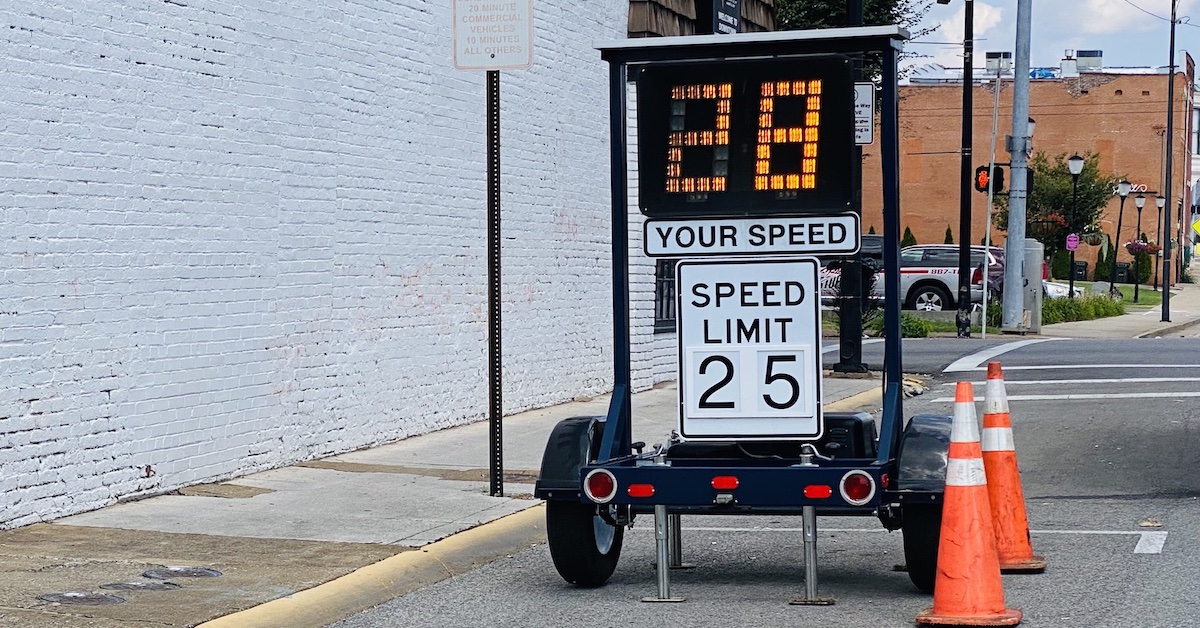
4. Determine a vision
To successfully revitalize downtown, Hopkinsville has to decide what it “wants to be and what it will take to get there,” Siegler said.
If a community doesn’t know where it is headed, it will never arrive.
This is the part of Siegler’s report to Hopkinsville that includes an encouragement to ignore those “who would never dream of something for themselves.”
5. Take action
Community leaders can spend a lot of time “talking, planning and plotting perfection” but there is nothing more valuable than “time spent taking action,” said Siegler.
Improvement is a long, hard road, but “relentless, incremental improvement” works.
“There’s no need to wait to improve,” he said. “Improvement won’t feel any different tomorrow than it does today. So you might as well get started on pulling the weeds and picking up the trash.”
The day after hearing Siegler’s report, Hopkinsville Brewing Co. founder Kate Russell invited a group of downtown business owners to meet at 4 p.m. Monday at the brewery to begin implementing some of his advice. And a couple of days after that, she and brewery co-owner Joey Medeiros built several wooden planters for the brewery’s back patio and filled them with mums.
I’d call that action.
Jennifer P. Brown is co-founder, publisher and editor of Hoptown Chronicle. You can reach her at editor@hoptownchronicle.org. Brown was a reporter and editor at the Kentucky New Era, where she worked for 30 years. She is a co-chair of the national advisory board to the Institute for Rural Journalism and Community Issues, governing board past president for the Kentucky Historical Society, and co-founder of the Kentucky Open Government Coalition. She serves on the Hopkinsville History Foundation's board.
